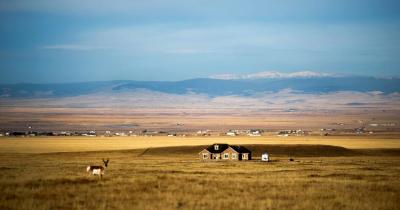
Small Towns Face Rising Suicide Rates (www.nytimes.com)
Rural adolescents commit suicide at roughly twice the rate of their urban peers, according to a study published in the May issue of the journal JAMA Pediatrics. Although imbalances between city and country have long persisted, “we weren’t expecting that the disparities would be increasing over time,” said the study’s lead author, Cynthia Fontanella, a psychologist at Ohio State University.
“The rates are higher, and the gap is getting wider.”
Suicide is a threat not just to the young. Rates over all rose 7 percent in metropolitan counties from 2004 to 2013, according to the Centers for Disease Control and Prevention. In rural counties, the increase was 20 percent.
The problem reaches across demographic boundaries, encompassing such groups as older men, Native Americans and veterans. The sons and daughters of small towns are more likely to serve in the military, and nearly half of Iraq and Afghanistan veterans live in rural communities.
The C.D.C. reported last year that Wyoming has the highest suicide rate in the nation, almost 30 deaths per 100,000 people in 2012, far above the national average of 12.6 per 100,000. Not far behind were Alaska, Montana, New Mexico and Utah, all states where isolation can be common....
...
...A combination of lower incomes, greater isolation, family issues and health problems can lead people to be consumed by day-to-day struggles, said Emily Selby-Nelson, a psychologist at Cabin Creek Health Systems, which provides health care in the rural hills of West Virginia.
...
Experts also note a mind-set, born long ago of necessity, dictating that people solve their own problems.
Leonard Jacobs, who grew up in southeast Iowa, moved to Laramie...After 9/11, he enlisted in the Marine Corps, and he spent a year deployed in Iraq in 2005.
He came back a different man, Ms. Jacobs said — prone to anger and paranoia, troubled by nightmares.... He refused to discuss the war and insisted on trying to fix himself, just as he had their car, their dishwasher and anything else in need of repair.
Eventually, fearing for the safety of their two children, Ms. Jacobs filed for divorce. The day she brought him the final papers, in February 2014, he retrieved a gun she had never seen from his truck and ended his life as she watched, horrified. It was their son’s birthday.
...
A lack of privacy can deter people from seeking treatment. “If someone’s car is there at the known psychologist’s office or mental health provider’s office, then of course others in the community know,” said Bryant Smalley, the executive director of the Rural Health Research Institute at Georgia Southern University.